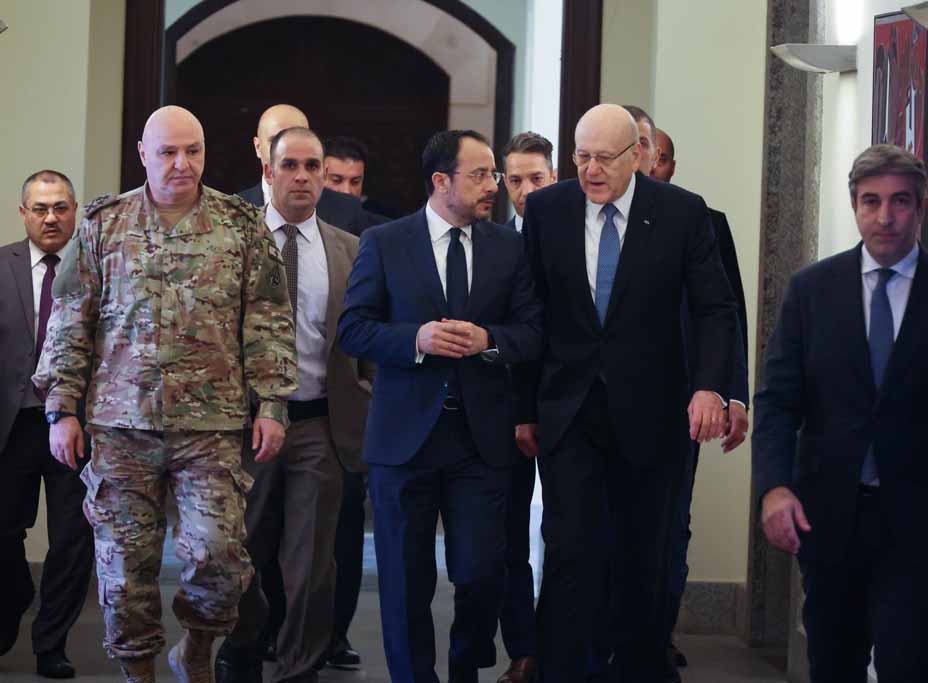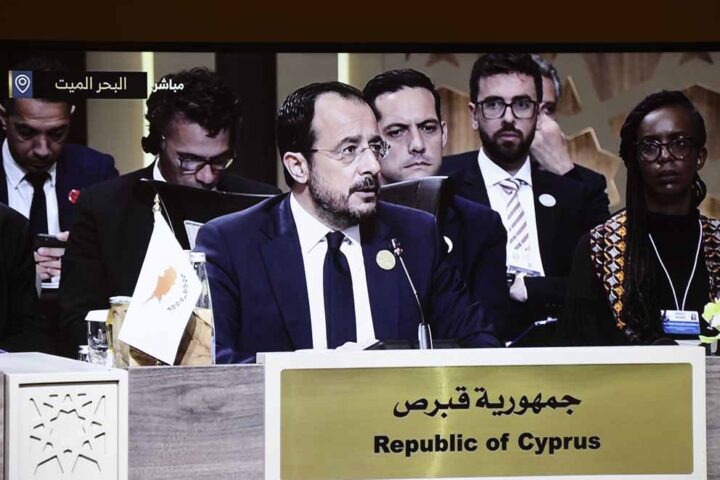The leaders of Cyprus and Lebanon agreed on Monday to cooperate closely to tackle the issue of growing migrant flows, mainly of Syrian refugees, from Lebanon’s shores, and to reduce the tension between the two countries.
Cyprus President Nikos Christodoulides and his close advisors were in Beirut on Monday morning where they discussed the migrant issue with Prime Minister Nagib Mikati.
In unusually direct remarks, Christodoulides said after a meeting with European Parliament President Roberta Metsola earlier last week, “I fully understand the challenges Lebanon is facing, but exporting migrants to Cyprus should not be the answer and cannot be accepted.”
Following that, in his comments to a Cabinet meeting in Beirut, Mikati called on the international community to “understand” the situation.
News reports said that at least 600 Syrians from Lebanon arrived in Cyprus during the first four days of April aboard small boats, while Cyprus received more than 2,000 migrants, mainly by sea in the first three months of this year, compared to just 78 during the same period in 2023.
Official in Beirut accept the fact that due to a spell of good weather, departures from the Lebanese coast for Cyprus are constantly increasing, causing turmoil between Beirut and Nicosia.
On the other hand, Lebanon currently hosts about 785,000 Syrian refugees registered with the United Nations High Commissioner for Refugees (UNHCR), with the unofficial estimate at 1.5 mln, making Lebanon the country with the highest refugee population per capita in the world.
This is also putting enormous strain on the struggling Lebanese economy, burdened with high unemployment and a disproportionate number of Syrian low-cost workers. About one in ten Syrian refugees in Lebanon live in extreme poverty, according to the international NGO Human Rights Watch.
Financial aid
During a meeting in Athens on Sunday, Christodoulides raised the issue with European Commission President Ursula von der Leyen, appealing for greater financial assistance to help Lebanon tackle the problem and patrol its shores more effectively.
Christodoulides was accompanied by his Foreign and Interior ministers, Constandinos Kompos and Constantinos Ioannou, the Cypriot Ambassador to Lebanon Maria Hadjitheodosiou, government spokesperson Konstantinos Letymbiotis and National Guard commander, Lieutenant General Georgios Tsitsikostas.
During the meetings in Beirut, Mikati was accompanied by Interior and Municipalities Minister, Bassam Maoulaoui, the Lebanese Ambassador to Cyprus, Claude Hajal, the Commander-in-Chief of the Army, Joseph Aoun, and other senior officials.
Christodoulides also met with the President of the Lebanese Parliament Nabih Berry.
In a statement after the meetings, government spokesman Letymbiotis said that, “the immigrant problem is common and its treatment through coordinated actions must be common.
“A very productive discussion was held in Beirut, during which the cooperation of the two countries was agreed with the substantial assistance of the European Commission.”
“President Christodoulides said that the implementation of the EU’s intentions also depends on the results of the actions on both sides to deal with immigration and the increased flows to Cyprus.
“Lebanon’s leadership recognised this immediate need and committed to intensifying surveillance efforts to identify illegal trafficking rings, Letymbiotis said.
“It was also agreed that there should be commitment on both sides in the implementation of what has been agreed during (Monday’s) talks, as well as that there should be a three-way coordination between Cyprus, Lebanon and the European Commission, as well as the undertaking of actions between Lebanon and the EU.”










